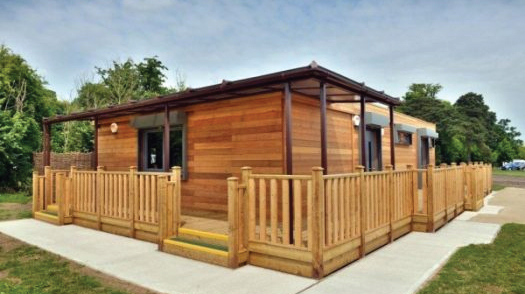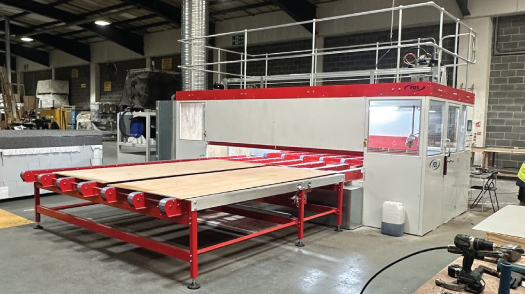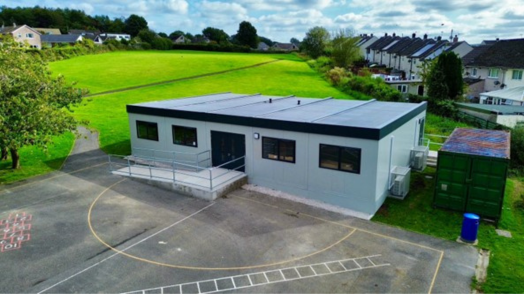Contact our friendly team for more information on our full range of buildings and how to start the process of hiring or buying a modular building for your business. Our expert team is always available to give advice, guidance or support.
Published: 15 October 2025 in Building Types
Meeting Public Sector Demands with Modular Building Solutions

The public sector is under increasing pressure to deliver safe, efficient, and sustainable buildings that serve communities effectively and stand the test of time. Whether the requirement is for a new classroom block, a healthcare facility, or additional office space, the challenge lies in achieving value for money while meeting strict deadlines and environmental standards.
Modular construction offers a proven way to achieve these objectives. By combining precision engineering, flexible design, and rapid on-site installation, modular buildings meet the public sector’s need for reliability, compliance, and cost control.
Faster Project Delivery for Time-Critical Services
Public sector projects are rarely afforded the luxury of time. Schools face the start of new terms, local authorities must respond to population growth, and healthcare providers often need new facilities at short notice. Modular construction provides a solution that aligns perfectly with these pressures.
Because the building modules are manufactured off-site in a controlled factory environment, construction and site preparation happen in parallel. This approach can significantly reduce total build time compared to traditional methods, while also reducing weather-related delays and site downtime.
For public sector organisations, this means essential services can open their doors much sooner. A council needing new office space, a hospital requiring a temporary ward, or a school expanding its classrooms can all benefit from a modular build schedule that prioritises delivery without sacrificing quality.
Controlling Costs Without Sacrificing Quality
Budgetary constraints are a constant consideration for the public sector. Every project must demonstrate best value, with strict accountability for expenditure and outcomes. Modular construction supports this through efficient production, predictable pricing, and minimal waste.
By manufacturing in a purpose-built facility, the process eliminates many of the inefficiencies found on traditional building sites. Materials are ordered precisely, labour is managed more effectively, and project costs remain stable. There is also less disruption to surrounding operations, which reduces indirect costs and delays.
For long-term savings, modular buildings offer excellent durability and low maintenance requirements as many can be adapted or reused in future projects, maximising return on investment and extending the lifespan of the structure.
Building for a Sustainable Future
Sustainability is now a fundamental expectation for all public sector developments. From reducing carbon emissions to improving energy performance, every project is assessed on its environmental impact, and modular construction is well-suited to these goals.
The factory-based production process produces significantly less waste, while off-site assembly means fewer vehicle movements and less disturbance to local communities. Modular buildings can also be fitted with energy-efficient systems such as LED lighting, advanced insulation, and renewable energy solutions.
Because modular units can be relocated or reconfigured, they support circular construction principles. This flexibility reduces the need for new materials and limits waste when requirements change. At Springfield Modular, every building is designed and built to meet or exceed the relevant building and environmental standards.
Adapting to Changing Public Sector Requirements
The needs of the public sector rarely stay the same for long. Population growth, new service demands, and policy changes often require facilities to expand, relocate, or change purpose. Modular construction provides the adaptability that traditional builds cannot match.
Buildings can be designed with future expansion in mind, allowing additional modules to be added as requirements grow. If a facility needs to move location, the structure can be dismantled and relocated with minimal effort. For example, classroom extensions can evolve into permanent school buildings, and temporary office units can become long-term workspaces.
This adaptability ensures that public sector estates remain fit for purpose, even as operational needs evolve. It also allows organisations to plan capital expenditure more effectively by spreading costs over time rather than committing to large, one-off projects.
Trusted Modular Solutions for the Public Sector
At Springfield Modular, we have delivered modular buildings for a wide range of public sector clients, including schools, healthcare providers, councils, and emergency services. Every project is designed to meet strict regulatory standards while achieving the client’s practical, financial, and environmental objectives.
Our process covers design, manufacture, delivery, and installation, ensuring full control and accountability from start to finish. We work closely with clients to understand their operational needs and tailor each solution accordingly. The result is a building that performs reliably, looks professional, and supports long-term public service delivery.
To discuss your next modular project, contact the Springfield Modular team. Our experts can guide you through design options, compliance requirements, and delivery schedules to ensure your project meets every objective efficiently and responsibly.
Interested in a modular building?
Springfield creates high-quality, purpose-built modular spaces to fit your requirements. Visit spring-field.co.uk or get in touch to speak to our team today!









